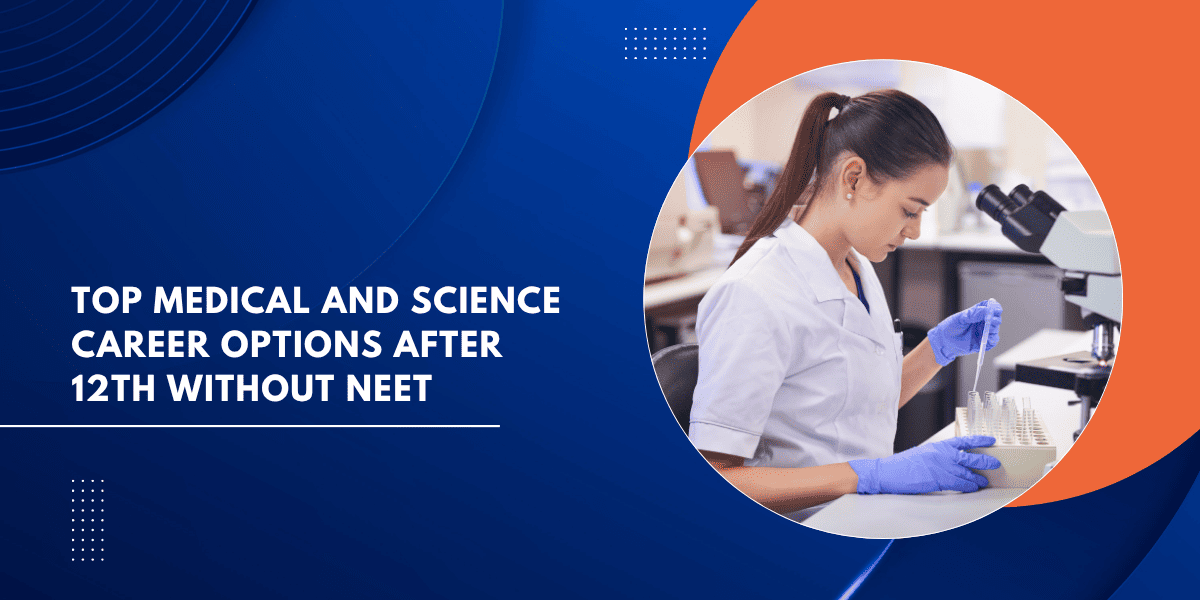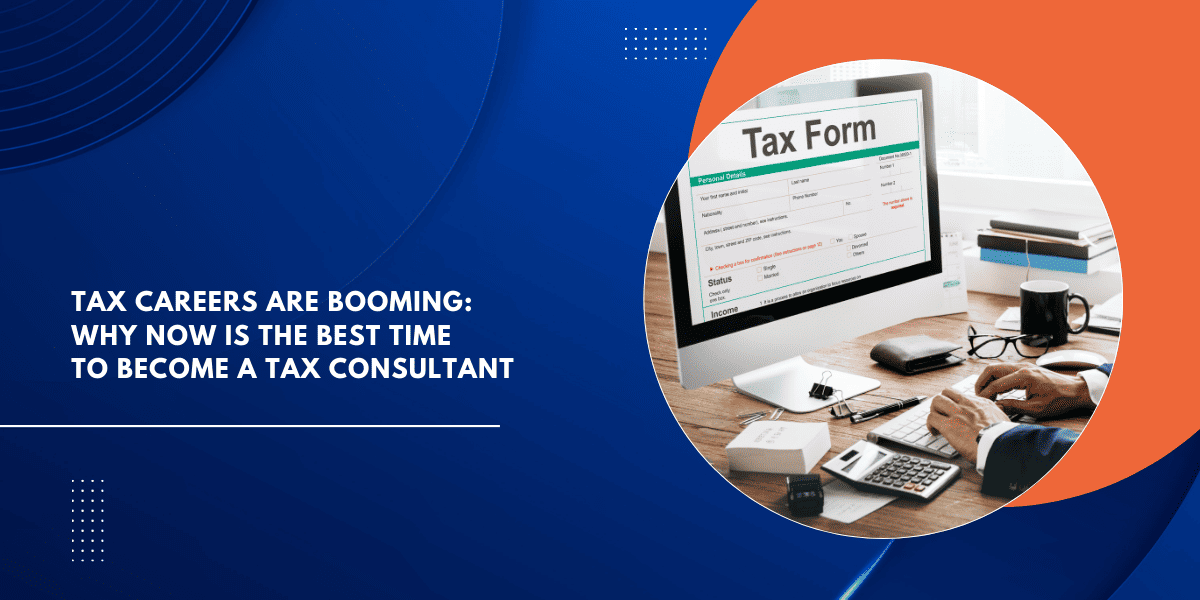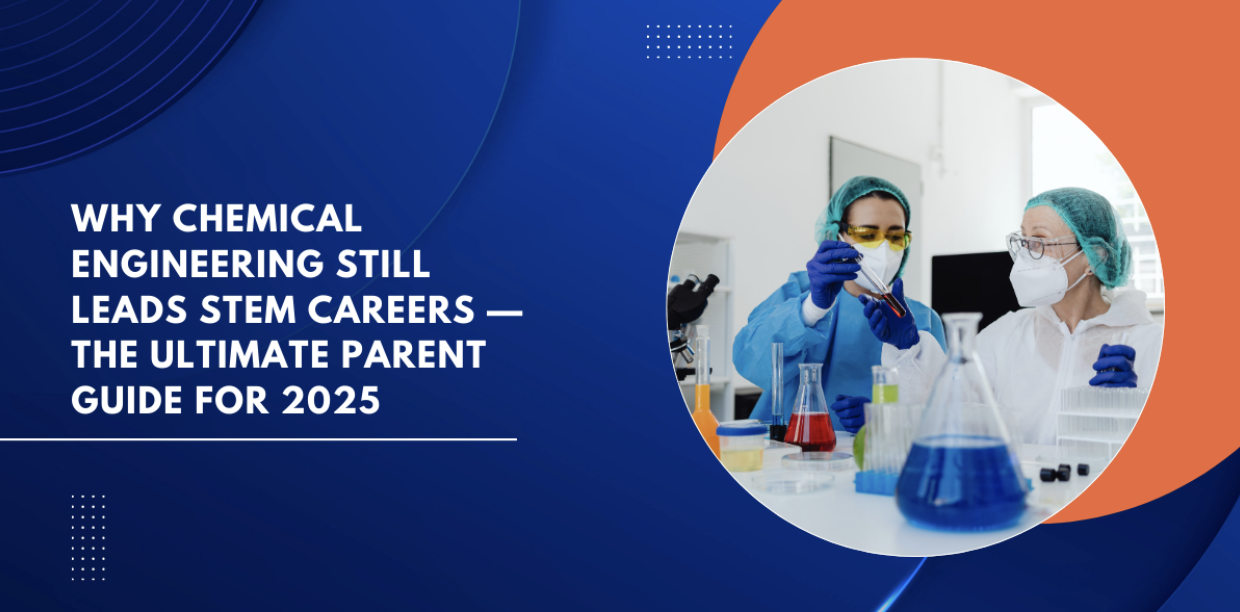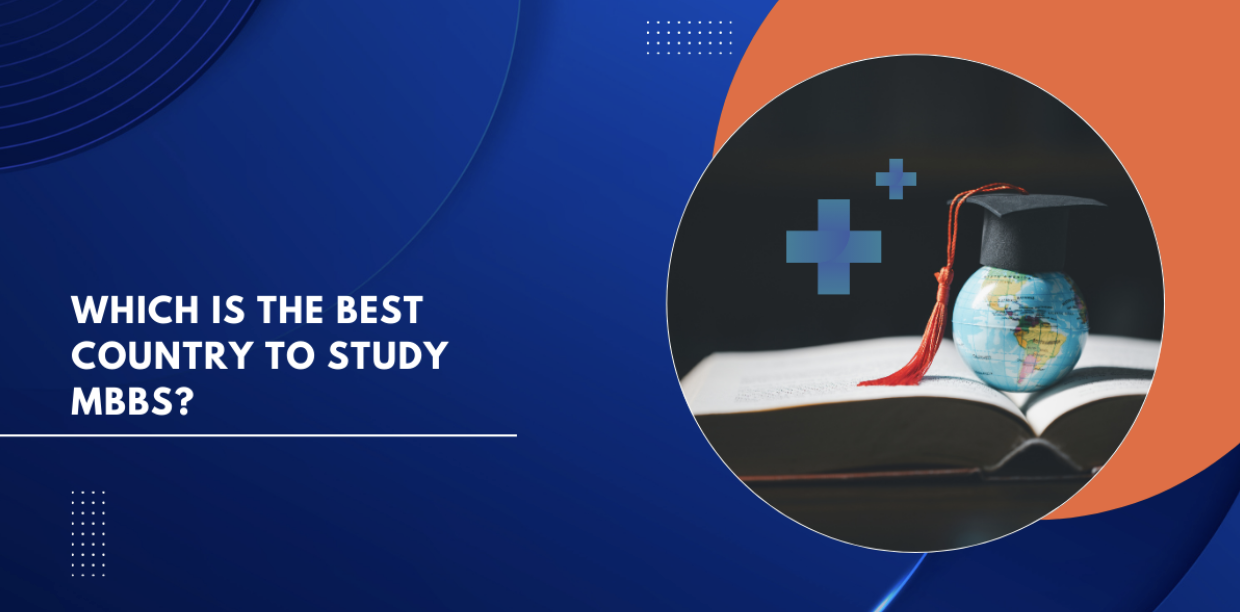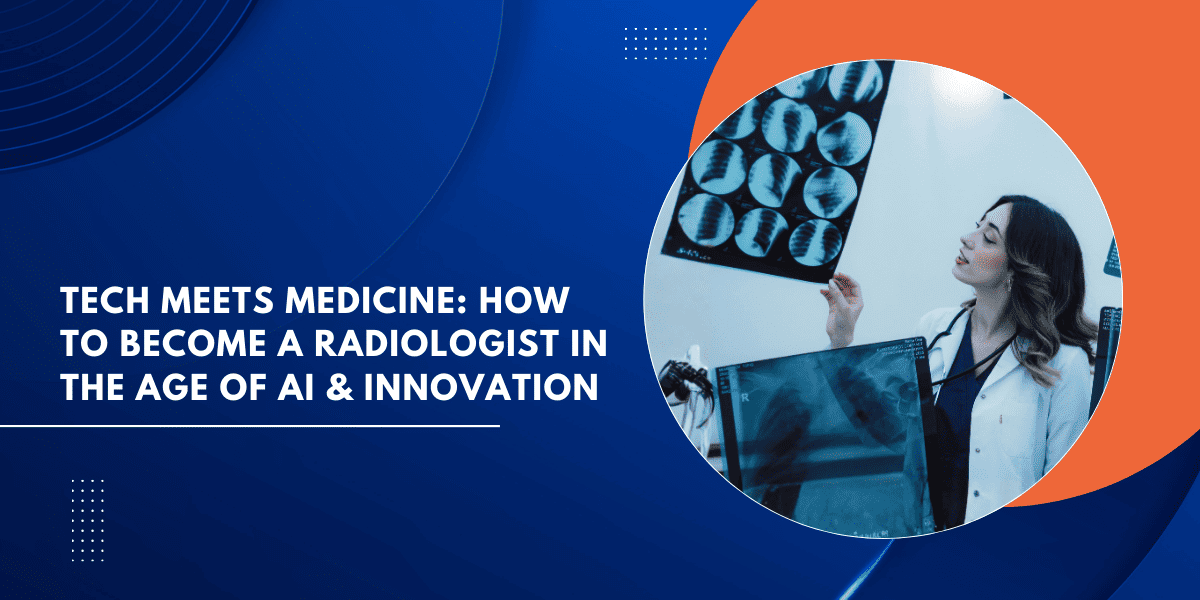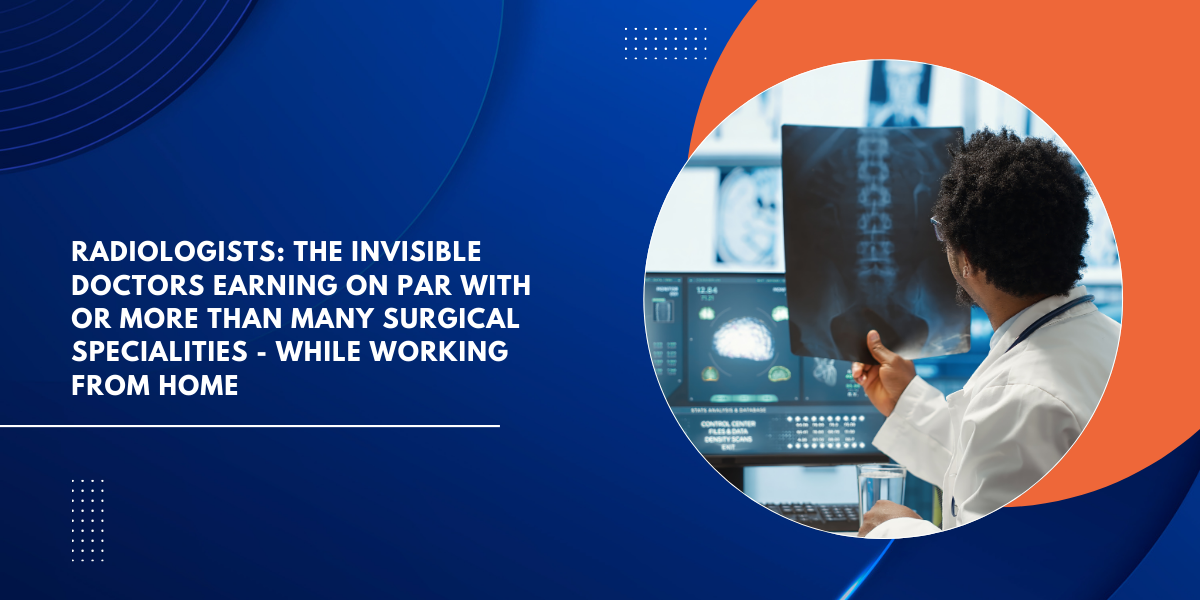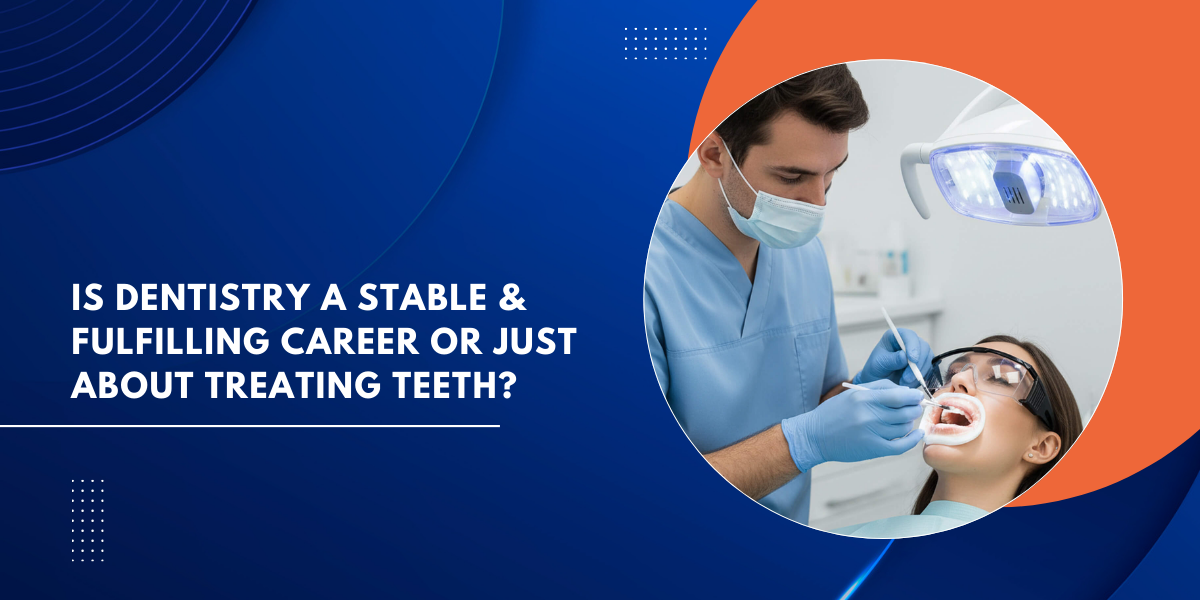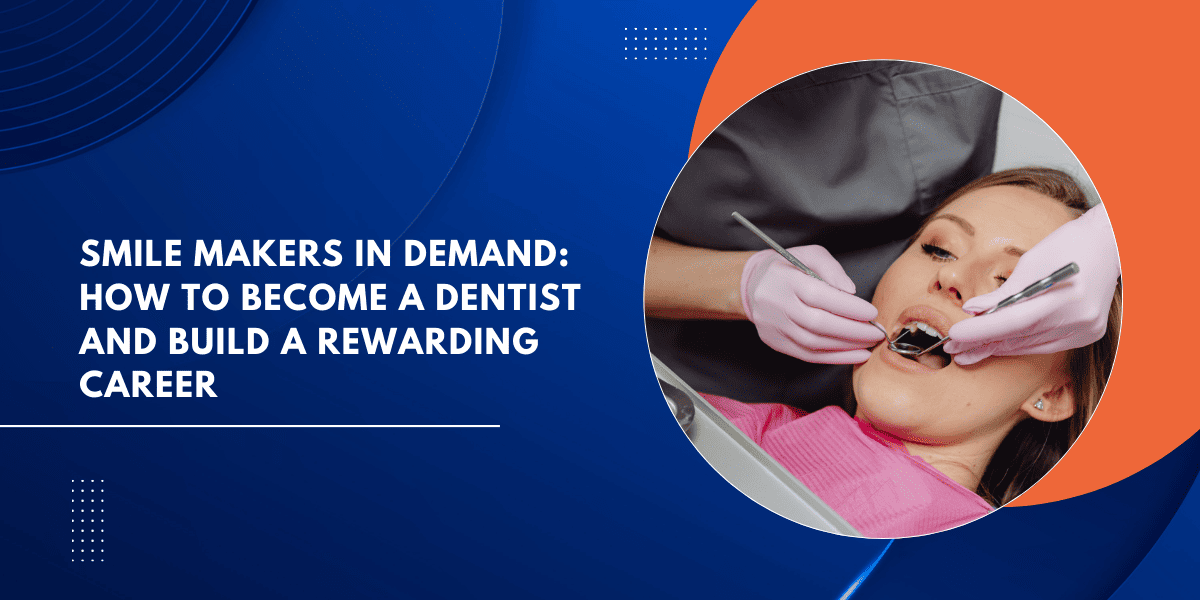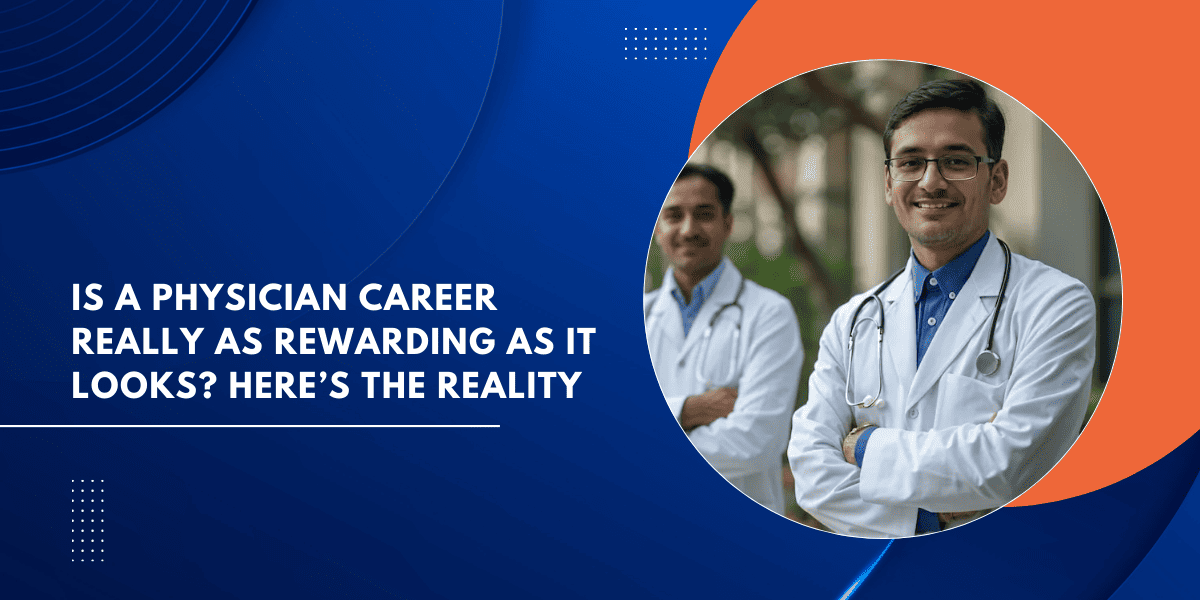High Salary Courses, Paramedical Programs, and Doctor Alternatives for PCB Students
Blog written by Preethi Durga, a career strategist and education innovator.
As someone who’s worked closely with hundreds of PCB students, I’ve seen the anxiety NEET causes up close. When the results don’t go as planned, it’s easy to feel like you’ve hit a dead-end. But here’s the truth: NEET is not the only way forward. In fact, it’s not even the best fit for everyone who loves biology.
In my experience, many students are unaware of just how many high-growth, global careers exist in the medical and life sciences field that don’t require a NEET rank or an MBBS degree. You don’t need a stethoscope to make a difference in healthcare. You need curiosity, compassion, and the willingness to explore.
There are over 25 exciting biology-based careers that are redefining the future of medicine, research, therapy, and innovation. And they fall into five major career families:
- Therapy & Rehabilitation
- Diagnostics & Core Medical Science
- Health Tech & Bioinnovation
- Mental Health & Human Performance
- Research, Pharma & Public Health
Let’s explore them in detail—with real-world trends, future opportunities, and the skills you’ll need.

Global Trends Affecting This Career
Healthcare is evolving rapidly across the globe. According to WHO, the global shortage of healthcare professionals—especially in specialized and support roles—is expected to rise to 18 million by 2030. Countries like Canada, the UK, Australia, and even parts of Asia are actively recruiting skilled professionals beyond doctors and nurses.
That’s why high salary career options in medical without NEET are gaining traction. Whether it’s in diagnostics, clinical research, therapy, or healthcare tech—there’s a global demand waiting for skilled talent.
Let’s explore some of the global trends that are shaping these careers.
1.Rise in Allied Health Professions Globally
According to the World Economic Forum, an estimated 40 million more health workers will be needed due to non-communicable diseases and ageing populations”
Takeaway: If you’ve ever felt that MBBS is the only path to being “in medicine,” let this sink in—over 60% of global healthcare roles today are non-doctor positions. That means your dream of working in hospitals, labs, or health tech is still very much alive, and you don’t need NEET to get there!
2. Health-Tech & Telemedicine Boom
As per a McKinsey Digital Health Report, global investment in health-tech crossed $57 billion in 2021, and the trend continues to rise. This boom has created new-age careers like health data analysts, bioinformatics specialists, digital diagnostics experts, and telehealth coordinators.
Takeaway: I’ve seen students who were initially disappointed about not cracking NEET completely transform their careers by jumping into digital healthcare. If you’re good with numbers or tech, this is a future-proof zone you should explore.
3. Mental Health and Rehabilitation Careers in Demand
A report by LinkedIn’s Jobs on the Rise (2024) revealed a 34% YoY growth in hiring for roles like clinical psychologists, occupational therapists, and speech-language pathologists. With rising awareness of mental health, careers in this field have gone from being “niche” to “mainstream.”
Takeaway: Mental wellness is not a trend—it’s a necessity. And in India especially, the demand for qualified professionals in psychology, speech therapy, and rehabilitation science is exploding. If you’re empathetic and people-centered, these fields offer immense scope and job satisfaction—and none of them require NEET.
The Future of Medicine Isn’t Just Doctors – It’s Smart Tech + Science
When I counsel students who feel disheartened by NEET, I often tell them—“You don’t need a stethoscope to revolutionize healthcare.” In fact, some of the most innovative and high-paying medical jobs today are in fields where biology meets technology.
According to the UN, by 2050, 1 in 6 people globally will be over 65 (UN World Population Prospects), creating immense demand for specialists in geriatrics, nutrition, diagnostics, and health management.
Paramedical careers, genetic science, and biotech are also getting a boost from government and private investment, indicating long-term career sustainability.
Let’s look at a few exciting areas where you don’t need NEET, but you can still make a powerful impact:
Biomedical Science
This field is the backbone of modern medicine. As a biomedical scientist, you’ll work in labs, researching diseases, analyzing patient samples, and developing new diagnostic tools or treatments.
For example, during COVID-19, biomedical scientists were behind the rapid development of testing kits and vaccines. You could work in hospitals, biotech firms, or research labs—contributing to real medical breakthroughs.
Where to study: Courses like B.Sc. in Biomedical Science (offered by Delhi University, Amity, Manipal, etc.)
Pro tip: Pair your degree with lab certifications to stand out!
Genetic Counseling
This career blends science, psychology, and empathy. Genetic counselors help individuals and families understand inherited conditions—like Down syndrome or BRCA gene mutations for breast cancer.
It’s a growing career, especially with increased access to genetic testing like 23andMe and MapmyGenome. You’ll work in hospitals, fertility clinics, or research labs guiding patients through complex, life-changing decisions.
Where to study: Postgraduate diploma or M.Sc. in Genetic Counseling (e.g., Manipal, SGPGI)
Pro tip: Great communication and compassion are must-haves here.
Neurotechnology
Imagine helping someone with paralysis walk again using brain-machine interfaces. That’s the magic of neurotechnology. It involves designing and using devices like neuroprosthetics, brainwave monitors, or even AI-based cognitive tools for patients with Alzheimer’s or stroke recovery.
You’ll find jobs in research institutions, med-tech startups, or working with neurologists on cutting-edge devices.
Where to study: B.Tech or M.Tech in Biomedical Engineering with electives in neuroscience or AI
Pro tip: Start exploring open-source neurotech platforms like OpenBCI to build hands-on experience.
Takeaway
If you’re someone who loves biology but also gets excited by innovation and technology, this path is tailor-made for you. These fields are:
- High-impact
- Future-ready
- And don’t require NEET.
You’re not just choosing a career—you’re choosing to be part of healthcare’s next revolution.

Job Demand & Hiring Trends
One major trend I’ve seen recently is the rise in demand for specialized experts in lab sciences, therapy, and clinical operations.
Here are some top medical-related courses you can pursue without NEET (and no, these aren’t all paramedical):
25+ Booming Career Paths in Biology Without NEET (2025–2030)
- Biomedical Science — Decode diseases at the molecular level by analyzing blood, tissues, and pathogens.
🔹 Workplaces: Hospitals, diagnostic labs, vaccine R&D centres
🔹 Trend: Critical for developing early detection kits and new drug therapies - Clinical Psychology — Treat mental health conditions through therapy, not medication.
🔹 Who it fits: Empathetic, intuitive students with strong listening skills
🔹 Workplaces: Hospitals, schools, mental health clinics
🔹 Trend: India has only 0.07 psychologists per 100,000 people—demand is rising fast - Nutrition & Dietetics — Design food-based solutions to improve health outcomes.
🔹 Example: Creating cancer recovery nutrition plans or sports-specific diets
🔹 Salaries: ₹3–8L p.a. for clinical or sports nutritionists
🔹 Next frontier: DNA-based personalised diet plans - Physiotherapy / Sports Rehab — Help athletes recover from ligament tears or seniors regain mobility after a stroke.
🔹 Workplaces: Hospitals, sports academies, or start your own practice
🔹 Trend: Hiring up 25% in urban centres with lifestyle-related injuries - Medical Imaging Technology — Operate CT, MRI, and X-ray machines to support accurate diagnosis.
🔹 Impact: Early detection of strokes, tumours, and bone fractures
🔹 Demand: India needs 3x more imaging techs to meet WHO standards
6–10: Therapy, Communication & Mental Health
- Occupational Therapy — Support patients in relearning daily activities post-injury or disability.
🔹 Workplaces: Neuro rehab clinics, special schools, elder care centres
🔹 Suited for: Students with patience and problem-solving mindset - Speech & Language Pathology (BASLP) — Help children and adults overcome speech, language, and swallowing disorders.
🔹 Growth: Increasing referrals for early childhood language delays
🔹 Example: Helping stroke patients regain the ability to speak - Audiology — Diagnose and treat hearing loss using modern tech like cochlear implants.
🔹 Workplaces: ENT hospitals, hearing aid companies, schools
🔹 Insight: Rising awareness means stronger career growth in early screening - Art / Music Therapy — Use creative modalities to support mental and emotional healing.
🔹 Workplaces: Hospitals, therapy centres, NGOs
🔹 Example: Helping trauma patients express emotions through painting or music - Behavioural Science — Study how people think and act, and design interventions to influence behaviour.
🔹 Impact: Used in public health, advertising, and social change
🔹 Growth area: Merging with data science for behavioural insights
11–15: Tech + Biology = Future-Proof Careers
- Bioinformatics — Use computational tools to analyse DNA, protein structures, or drug response.
🔹 Roles: Genomics analyst, bioinformatics scientist
🔹 Trend: Key to breakthroughs in cancer research and rare disease treatment - Genomics & Genetic Counselling — Guide families on inherited diseases using DNA insights.
🔹 Example: Advising couples with risk of genetic disorders
🔹 Growth: Core field for personalised medicine - Health Data Science / AI in Healthcare — Build algorithms that predict diseases or automate diagnoses.
🔹 Tools: Python, R, SQL, machine learning
🔹 Demand: Global health tech market expected to hit $500B+ by 2027 (McKinsey) - Neurotechnology — Create brain-machine interfaces and tech that helps with neurological disorders.
🔹 Example: Devices helping paraplegics control wheelchairs with thought - Digital Health / Telemedicine — Enable care delivery through apps, sensors, and virtual consults.
🔹 Growth: Accelerated by COVID-19, now mainstream
🔹 Careers: Product managers, digital health UX designers, AI triage bots
16–20: Research, Pharma & Environmental Sciences
- Clinical Research & Trial Management — Coordinate clinical trials to test safety and effectiveness of new treatments.
🔹 Workplaces: Pharma companies, hospitals, CROs
🔹 Salaries: ₹4–10L p.a. with growth into project leadership - Pharmaceutical Sciences — Work in drug discovery, formulation, or regulatory affairs.
🔹 Career path: Pharmacovigilance, quality assurance, medical rep roles
🔹 Impact: Drive global access to safe medications - Forensic Science — Solve crimes using biological evidence like DNA, blood, or tissues.
🔹 Workplaces: Police departments, courts, private labs
🔹 Suits students: Curious, detail-oriented, and emotionally resilient - Environmental Biology — Study ecosystems, climate impacts, and sustainability strategies.
🔹 Examples: Monitoring water pollution, biodiversity tracking
🔹 Global need: Climate resilience experts across industries - Virology / Immunology — Study pathogens and immune systems to fight diseases and pandemics.
🔹 Career roles: Vaccine R&D, diagnostics, public health policymaking
🔹 Essential field: Especially post-COVID, with new virus threats
21–25: Niche, Blended or Business-Focused Options
- Science Communication / Medical Writing — Simplify scientific knowledge for the public or professionals.
🔹 Platforms: Journals, blogs, pharma companies, edtechs
🔹 Who it fits: Clear writers with science curiosity - Public Health & Epidemiology — Tackle large-scale health problems like outbreaks or malnutrition.
🔹 Employers: WHO, NGOs, government health bodies
🔹 Example: Designing community vaccination drives - Healthcare UX/UI Design — Design intuitive apps, diagnostic devices, or EMR systems for better patient care.
🔹 Best for: Biology + design/tech combo learners
🔹 Impact: Make complex systems easy for patients and doctors - Hospital Administration — Run operations, budgets, and teams in large hospitals or chains.
🔹 Skills: Leadership, organisation, healthcare compliance
🔹 Growth: ₹6–20L p.a. as you move into senior roles - Cognitive Science / Brain-Based Education — Explore how learning and decision-making work, and apply that to edtech or therapy.
🔹 Applications: Special education, AI cognition models, user psychology
But here’s the thing — the best career isn’t just what’s hot right now.
It’s what’s right for you.
That’s why at NextMovez, we use the Career Clarity Compass™ — a proven framework that helps you reflect on your Personality, Interests, Motivators, Environment, Values, and Skills.
Once you truly know yourself, these 25+ biology careers won’t feel confusing — they’ll feel like a roadmap tailored to your strengths and story.
Skills That Set You Apart – What Future-Ready Medical Professionals Really Need
One thing I always remind students is—“Your degree is just the beginning. What truly gets you hired is how skill-ready you are for the real world.”
In today’s competitive, tech-driven healthcare space—especially in medical courses without NEET—there’s a premium on those who bring a blend of technical, analytical, and human-centered skills to the table.
Here’s a breakdown of the in-demand skills you should be building right now (and how to do it!):
Tech-Savviness
Gone are the days when doctors and researchers relied solely on textbooks. Today, tools like MATLAB (used in medical imaging), SPSS (for analyzing research data), and digital pathology software are essentials in fields like biomedical science or clinical research.
Example: A student I mentored recently used MATLAB in her final-year project to design a simulation model for glucose monitoring—she landed an internship with a health-tech startup before even graduating.
Tip: Start with beginner-friendly platforms like Coursera or edX to explore these tools alongside your degree.
Data Analysis
Whether you’re a public health analyst or a genetics researcher, you’ll work with data—loads of it. Knowing how to clean, interpret, and visualize health data (using Excel, Python, or R) makes you job-ready.
Example: In clinical trials, even junior researchers are expected to understand patient data trends. One of our students used Tableau to present patient nutrition data and impressed his internship evaluators!
Communication Skills
Whether you’re in clinical psychology, nutrition, or even genetic counseling, being able to explain medical concepts in simple language is everything.
Why it matters: Patients may not understand terms like “HbA1c” or “gene expression.” Your ability to make them feel informed and reassured is what makes you exceptional.
Tip: Practice through mock sessions, volunteer with NGOs, or take up peer mentoring—it sharpens both confidence and clarity.
Critical Thinking
Diagnosing a rare condition, identifying anomalies in lab results, or deciding on next steps in research—these all require sharp analytical skills.
Example: One aspiring forensic analyst I coached developed this by solving medical case studies during her B.Sc. in Forensic Science. She’s now in a high-paying role in a government lab.
Tip: Join clubs, competitions (like MedTech hackathons or science quizzes), and practice solving real-world cases.
Empathy & Patience
In roles like speech therapy, clinical psychology, or occupational therapy, your emotional intelligence is your superpower. Clients may be anxious, confused, or resistant—and your ability to stay calm and kind defines their healing journey.
Example: A student working as a rehab therapist told me how her patient—a 7-year-old boy with autism—responded positively simply because she never gave up on him.
Tip: Volunteer at hospitals or special schools to build emotional resilience and practical exposure.
Final Takeaway
Don’t just prepare for a job. Prepare to make a difference.
In these PCB career options without NEET, the real winners are those who go beyond academics—those who blend science with sensitivity, and logic with compassion.
You don’t need to crack NEET to build a meaningful, high-paying career in medicine. You just need the right mindset and the right skills.
Final Thoughts
So here’s my take: high salary jobs in the medical field no longer require just a stethoscope or NEET score. They need vision, adaptability, and a desire to solve real-world problems.
“Be curious, stay open-minded, and don’t fear the unconventional path—it might just be the one that changes lives, including your own.”
Conclusion: What This Means for Aspiring Professionals
The next time someone tells you NEET is the only way to build a career in biology, remember — there’s an entire ecosystem of exciting, high-impact options beyond it. The real question isn’t ‘what now?’ but ‘which path aligns with my strengths and aspirations?’
Need help answering that? Let’s discover it together. Book a free clarity session with our team — no pressure, just fresh perspectives.”
Resources & References Used
- AIIMS Paramedical Programs – Official Website
- National Skill Development Corporation – Healthcare Sector
- Careers360 – Medical Courses Without NEET
- WHO Global Health Workforce Statistics
- [Naukri & LinkedIn Trends – Healthcare Jobs India 2024]

